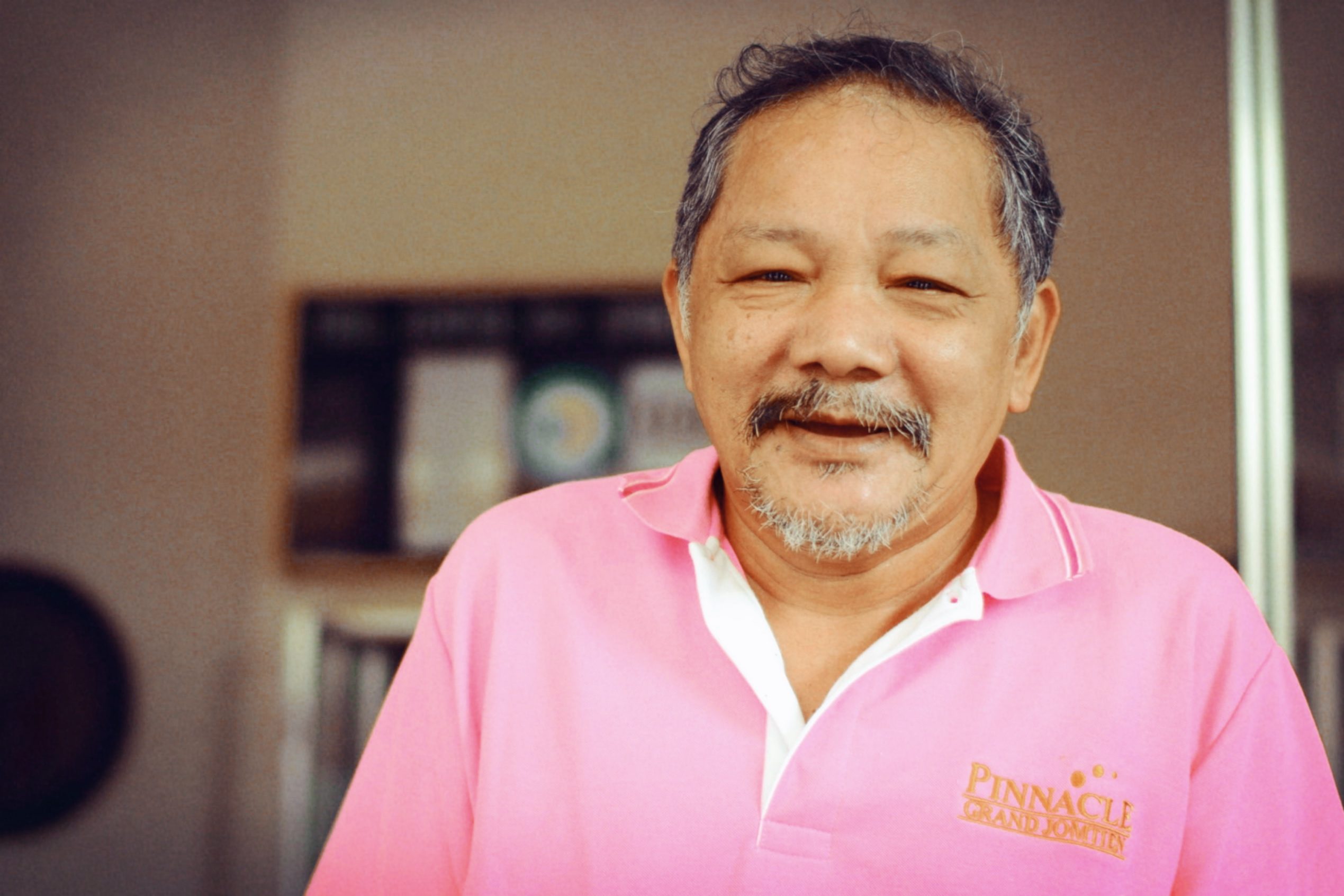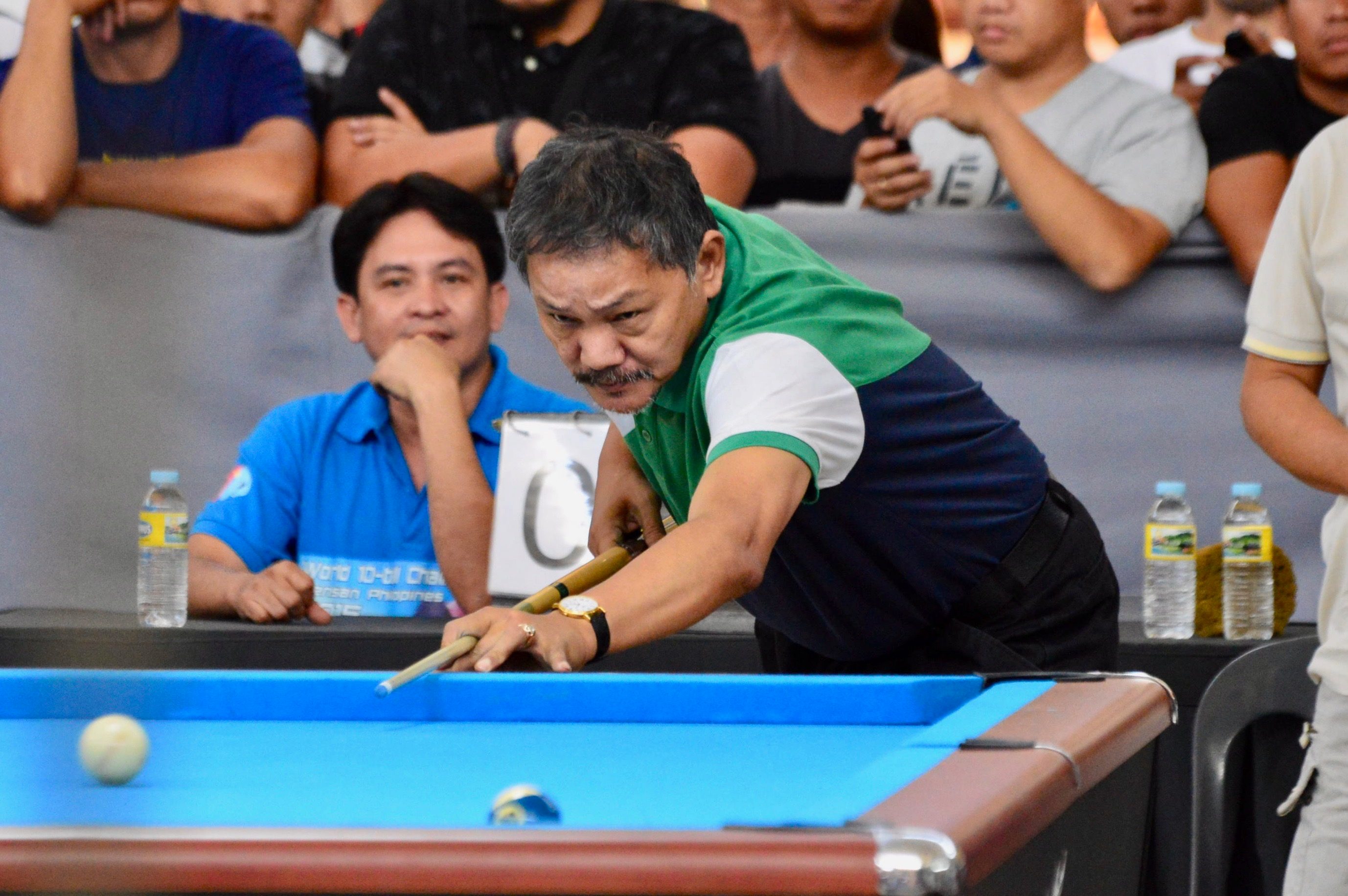SUMMARY
This is AI generated summarization, which may have errors. For context, always refer to the full article.

Efren Reyes makes one thing very clear at the beginning of our interview: he is far from unscrewing his pool cue for good.
“Wala akong balak magretire. Habang pwede pa, maglalaro ako. Hanap-buhay ko ito. Hindi lang ako sasali ng tournament na malayo.”
(I have no plans of retiring. While I still can, I will play. I just won’t join tournaments far away.)
Those words will be comforting to his multitude of fans. But even if he were to pocket a ten ball for the last time, would those admirers even notice?
Reyes turns 63 on the 28th of this month. The sport he plays has slowly but surely faded from the limelight in the Philippines. There are no more TV tournaments held on Philippine soil, and many poolrooms have shuttered.
But the Kapampangan legend remains one of our most recognizable sports figures. And he is still actively playing for the flag.
Reyes will represent the Philippines in the SEA Games later this month in the quirky discipline of English Billiards, far from his strongest game. Later in the year he travels to Tajikistan for the Asian Indoor Games to compete in 3-cushion billiards and Moscow Pyramid, an esoteric Russian game using huge balls that only just pass through tiny pockets. Reyes has never played Pyramid before. Why has he been chosen to play them? Probably because in terms of intellect and experience, he represents our best shot at success.
But Reyes has overcome adversity all through his life. From a hardscrabble childhood he rose to iconic status in the world of cue sports. Reyes won a world 9 ball title in 1999 and is one of a select group of world champs who have also won the prestigious U.S. Open 9 Ball championship (Earl Strickland, Johnny Archer, Nick Varner, Alex Pagulayan, Mika Immonen, Darren Appleton and Ralf Souquet are the others).
Reyes captivated pool fans with a mixture of creative shotmaking and a down-to-earth charm that won him plenty of endorsements.
The cognoscenti loved him too. All pool players studied his patterns and learned how to navigate the table in the most efficient way possible. Reyes largely eschewed the use of a jump cue and was a master of that Filipino specialty, the 3, and sometimes 4-rail attacking counter safety. Many a player has thought he has locked up Reyes and thrown away the key, only to find himself in jail on the next shot.
Reyes has little to prove anymore, so he is mostly taking it easy these days. Reyes splits time between homes in Angeles and in Pasig. He played a series of One Pocket tournaments in the states recently, but says the competition has gotten tougher even in that discipline, where he is regarded as the best ever.
“Lamang na mga kalaban ko. Di ko na magawa ang dating pagpapatakbo ng pamato,” he says with an air of resignation but with little bitterness.
(My opponents now have an advantage over me. I can’t do what I used to be able to do with the cue ball.)
“Ang isip meron, ang tira wala,” he says with a grin.
(The thinking is there but not the shooting.)
Indeed, the hounds have been at the gate for several years now, as young shooters from all over have hogged the spotlight. We ask Reyes what he thinks of a few up-and-coming Pinoy shooters who could join him in the ranks of world pool champs.

Reyes still rates Dennis Orcollo as one of our best players, but quite a few are dismissed as good-breaking, sharp-shooting hotshots who lack the knowledge of the “pamamaraan,” (literally “the way” in Filipino), or how to take apart a rack in the easiest and most logical manner. In English pool jargon the term would be “playing the right patterns,” plus making all the crucial decisions about when to go for the offensive play or play safe. Or when to play a “two-way shot,” an offensive play that leaves an opponent snookered in case the shooter misses.
“Nasa akin ang pamamaraan, pero talo nila ako sa shooting,” he recounts. (I know the patterns but they beat me with shooting.)
These nuances of game were what separated him from the rest. Reyes still feels many of the top young Filipino standouts still lack “pamamaraan,” but says that Carlo Biado is the one that comes closest to reading the table as well as he does.
Three days after the interview Biado captured the 9 ball gold medal in the prestigious World Games in Poland, outplaying the outstanding Scottish pro Jayson Shaw.
Reyes does give credit to young guns like Jericho Banares, Jeffrey Ignacio, Johann Chua, and Anthony Raga as being the next wave of Pinoy pool stars. Banares recently won Manny Pacquiao’s 10 ball tournament in Gen San.
“Marami pang magagaling na di kilala,” he adds. (There are a lot of good unknown players.)
But of what use is this new breed of players if the local pool scene is moribund? Reyes bemoans the sad state of affairs.
“Hindi na masyadong popular ang pool ngayon. Nawala ang mga tournament, di na televised. Kailangan magaling na organizer.”
(Pool isn’t as popular as it used to be and the tournaments are not on TV. We need good organizers.”)
There are whispers that a big tournament will be once again held in the Philippines but as of the moment nothing is certain.
Meanwhile Reyes keeps himself occupied with challenge matches all over Metro Manila and the neighboring provinces. With the reduced level of his play he now gladly accepts a handicap for many of these matches, which helps keep him competitive. A typical handicap or “partida,” would be 8-10 or 9-10, meaning he can win a rack of 10 ball by sinking the 8 or 9 instead of the 10. Or he is granted “racks on the wire,” or racks pre-added to his total in a race.
When he isn’t playing pool Reyes indulges in his other cerebral passion, chess. Reyes will join a poker game every now and then but is careful to keep the stakes low, avoiding the fate of other pool players whose bank accounts have been drained by that game.
He is also a doting grandfather to 5 grandkids from his children Frennie, Rose and Chelo. But his kindness extends beyond his immediate family. When asked about how many children he has put through school Frennie initially says it’s about 10. Efren looks into the distance and does some arithmetic in his head before coming up with a more exact number.
“Hindi, mga kwarenta na.” (No, about 40 already.)
Like any 60-something Reyes has a few struggles with cholesterol and elevated blood sugar but his longtime wife Susan makes sure he takes his medicines regularly. Reyes has a beer every now and then but never to excess, and he hasn’t smoked since the nineties.
His best years might be behind him, but Reyes isn’t quite done yet. Later in the year he will participate in the All-Japan Championship, a storied event with a rich history. Reyes says that playing in Japan is a much better proposition than the USA because of the cheaper airfare. He also occasionally nicks a free hotel stay there.
Recently Filipinos Johann Chua and Raymund Faraon have been champs in the All-Japan. Might Reyes come out on top this time?
Efren Reyes, the magician, might have one more trick up his sleeve before he exits. – Rappler.com
Follow Bob on Twitter @PassionateFanPH
Add a comment
How does this make you feel?
There are no comments yet. Add your comment to start the conversation.